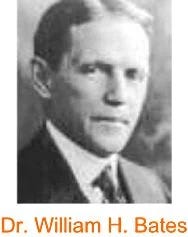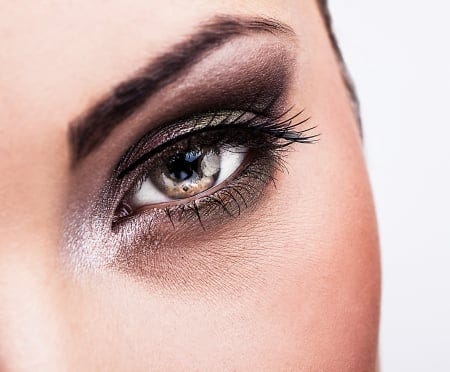What is the evidence that you can learn to see without glasses or contact lenses?
A lot of people ask me: “What is the evidence that you can learn to see without glasses or contact lenses? Because you can say that now, but I don’t really believe it.” I can imagine that it is hard to believe, because we have always been told that we simply need glasses if we cannot see well. How often do you hear the words, for example, when someone cannot read the small print: “It is time for glasses.” Many people already got the glasses message when they were only a few years old. And now I say that you do not need glasses! Where is the evidence?
In this article I will give you an overview of various studies and evidence that I have come across in this context. I will indicate in advance that this is not a scientifically sound collection of facts. I am someone who reads a lot, I pick out what I find important and I like to spread the insights that this provides me. I will now provide an overview of these insights, without naming all the scientific studies by name. I do not have these data at hand. If I were to mention them here, it would be a lot of work for me to find them all together. If you want to know the ins and outs, I advise you to google the data that I have listed below.
The findings of Doctor Bates.
Doctor Bates spent 45 years of his life researching his patients and examining their eyes and complaints. Not everyone calls what he did scientifically sound and some say that his views are outdated. Personally, I think it is very special what this man discovered, even though it was 100 years ago. If you ignore all his findings, I think you are missing important information.
What did Doctor Bates discover?
Eyeballs are soft, you can pinch them. As soon as you do that, the eyeball deforms and this causes blurry vision. This is because the light rays that enter the eye no longer come together in one focal point on the retina, but in front of it (nearsightedness) or behind it (farsightedness). Bates discovered by experimenting with the eye and eye muscles of a dead rabbit that pressure on the muscles causes a similar distorting effect.
Doctor Bates has done a lot of research with the help of his patients. A remarkable study is the following: he had two men look at a white wall. One man was nearsighted, the other could see well. Bates tested the eyes of the men with a retinoscope and both had no deviation, the eyeballs were nicely round and not distorted. He then hung a letter card on the white wall. The man with good vision still had no deviation, the man with nearsighted eyes immediately became nearsighted again when he looked at the letter card. This was the result of the tension that arose in the eye muscles.
Bates discovered the positive influence of activating memory and imagination on vision. He discovered that vision improved through ‘sun exercises’ and ‘palming’.
Doctor Bates reported extensively on his findings in his book ‘Perfect Sight without Glasses’ and in his monthly magazine.
Bates discovered the connection between shallow breathing and poor vision. And that you can help improve both by giving people the assignment to do the palming exercise.
Deterioration of vision.
Much scientific research has been done in the past decades into the factors that cause our vision to deteriorate. For example, the Ophthalmological Institute in Rotterdam knows that if people start wearing strong glasses at a young age (5, 6 years old), the chance of serious eye diseases increases around the age of 50 and older. I then conclude that wearing glasses is apparently so bad that your eyes can become sick from them. When I ask people whether their eyes have improved or deteriorated since they started wearing glasses, the vast majority say that their eyes have deteriorated. Just ask around yourself. Wearing glasses is therefore worse for our eyes than we generally think.
A monkey with glasses.
A study was done on monkeys. The eyes of these monkeys were measured and according to the measurement they were fine. Then the monkeys were given glasses for two weeks, with a correction of -1.5 in the glass, if I remember correctly. After two weeks the eyes were measured again, and what did they find? The eyes no longer saw perfectly, but had adapted to the glass. The deviation had become minus 1.5.
Bad night light.
The effect of sleeping in the dark on vision has been studied. The chance of myopia increases drastically when children sleep with a night light on (35%) and even more when they sleep with the light on at night (50%). Myopia was least common in this study in children who slept in a dark room (10%).
Myopia and playing outside.
Various studies have also been conducted on children in connection with the effect of daylight. All these studies show that the chance of myopia increases as children play outside less. For healthy eyes that can see well, it is important that children spend at least 2 hours a day outside. This also applies to adults.
Computer and tablet.
A Dutch study has shown that if children spend more than half an hour a day behind a tablet, the chance of myopia increases. Japanese research shows that the chance of glaucoma increases in myopic people who spend many hours behind a computer every day.
Emotions and vision.
I have not yet come across a study on the connection between emotions and vision. However, I have experienced a lot in this area myself. The release of old emotions has an immediate healing effect on my vision and I have also experienced this many times with participants in my program. A good, discharging cry can provide great emotional relief, and also literally ‘clear’ the air that you see around you.
Nutrition and eyes.
Studies have been conducted in America on the connection between various eye complaints and the intake of carbohydrates. These studies show that eating a lot of carbohydrates is the main cause of cataracts and macular degeneration. Carbohydrates include sugar, bread, pasta, rice, potatoes, sweet fruit and sweet vegetables. I have read several times that eating sugar causes myopia.
Eggs are good for the eyes.
Eating eggs appears to have a beneficial effect on the eye disease macular degeneration. Eggs contain a lot of lutein and zeaxanthin, antioxidants that occur naturally in the eyes. It turns out that eating lots of eggs can stop and even reverse macular degeneration. Even better than eating vegetables or nutritional supplements that contain these antioxidants.
Nutrient deficiencies.
Various studies have shown that eyes with cataracts, glaucoma, macular degeneration and floaters (those black streaks that float in your field of vision) have a deficiency of collagen. This is a building block found in gelatin. Eyes with cataracts have too little vitamin C in the lens. With dry eyes, there is a deficiency of vitamin A. Blurred vision, and even blindness, can be caused by a deficiency of vitamin B12. Liver and kidney problems have a negative effect on vision. An underactive thyroid gland can cause myopia.
What do the eyes need?
What is the evidence that you can learn to see without glasses or contact lenses? Many studies have been conducted into the causes of poor vision. I know that Dr. Bates mainly did research with the intention of solving the problem and creating perfect vision. But we can also learn from all those other studies. Namely, what is the opposite? What do the eyes need to see well? The conclusion is: the eyes need free vision (without glasses or lenses in front of it), sufficient light and darkness, limited use of screens, and nutrition that provides the eyes with the substances they need and does not deprive them of them.
Warm regards, Karin Hogenboom














Share this post